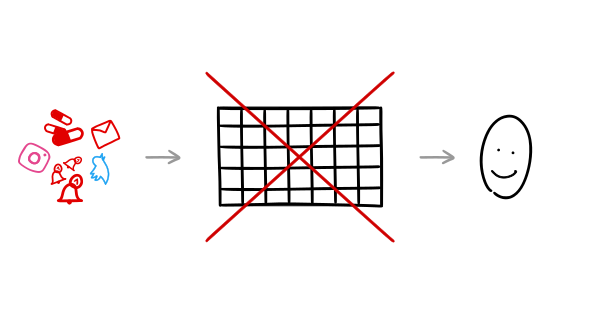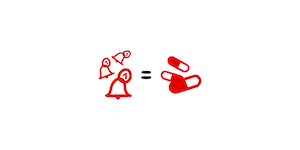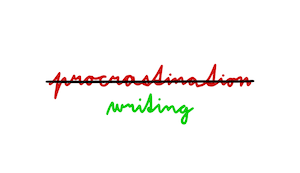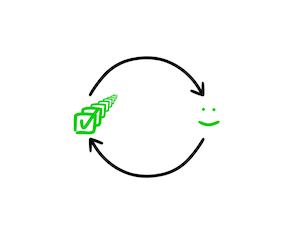Abstinence isn’t recovery

People often think that abstinence = recovery from addiction.
This is often portrayed in pop culture - people struggling to abstain, going to rehabs…
Actually, abstinence is only a part of recovery, not the whole process. (Also there are different recovery approaches that don’t use abstinence).
Abstinence often serves as a tool to make the recovery process easier.
It’s difficult to think straight when you’re heavily engaging in addictive behavior. Our brain at the moment only wants more of our fix, and heavily discounts everything else.
When you abstain, you give yourself time to step back and rethink.
Though, abstinence isn’t a panacea because:
You can abstain but not recover
This is a common issue of rehabs and challenges (dopamine detox, nofap challenge…)
People think that hitting a certain number of days will mean they’re recovered.
The problem is that if you don’t address the underlying reasons that led you to become addicted in the first place (e.g. the inability to deal with stress), you will be back in your addictive behavior in no time. Or you might find a new addiction along the way.
People can hit even 1000 days, yet they still might be addicted and desire their fix.
Abstinence gives you time to step back and think, but it’s up to you to develop an emotional toolbox and perhaps build a better life so that there is no longer a need to escape.
What about things you can’t really abstain from?
You can recover without abstinence
People get addicted to their smartphones, email, messaging, and the Internet in the general. These are things we can’t usually abstain from.
Luckily, you don’t need abstinence to become free of addiction. Not being able to abstain is both a disadvantage and an advantage.
In the beginning, it’s a disadvantage because it is more difficult to learn to control - you might keep struggling, get into rabbit holes with no idea how to get out of them.
Learning to restrain yourself is difficult because of the nature of addiction (the inability to control yourself).
Additionally, in abstinence it’s easy to know whether you had a drink or played a video game or not. It’s binary: you did it or not.
It’s more difficult to control yourself when you have to keep doing the addictive behavior every day. Did I spend too much time on my email or not? I had to reply to emails. There are a lot of gray areas.
But that can be ultimately be advantageous because:
1. People who “just” have to abstain often focus on hitting the number of days - “yay, I didn’t play games for 50 days” - and they miss the point about addressing the reason
why they started compulsively playing in the first place (e.g. they were lonely).
2. It forces you to start addressing the reasons - to really understand what drives you to do that and replace it with healthier choices. For example not being intellectually challenged → reading a book on a subject of interest instead of compulsively reading news.
3. It helps you develop your emotional toolbox because you’re forced to learn to moderate by surfing the wave of cravings, and deal with adversity. We accomplish this by exposing ourselves to the addictive behavior, which is supposed to help us learn to control ourselves (learning to stop watching after one episode). This isn’t easy but can ultimately be the key to becoming free of addiction.
We talk more about how to really do it here: how to recover from addiction.
If you keep struggling, consider the nuclear option
Don’t feel bad or guilty about if you keep struggling - the things are designed to pull you back as often as possible.
If you keep struggling and it’s possible, consider the nuclear option. Abstinence can be a helpful tool here.
Examples: Getting a dumbphone temporarily instead of a smartphone can help you rethink your relationship with it.
Not using the Internet at home - only for work outside.
Desperate times call for extreme measures.
Just keep in mind that abstinence gives you time to step back, but won’t address the reasons why you became addicted to your phone in the first place. Abstinence isn’t recovery.
Debunking misinformation
There’s a lot of stigma and misinformation associated with the topic of addictions. One such myth is that abstinence is the solution, when in fact it’s a double-edged sword as we’ve covered in this article.
Another piece of misinformation is thinking about addiction as a chronic disease → recovery is temporary. In reality, we think that one instead becomes free of addiction and we’ve covered it here.



